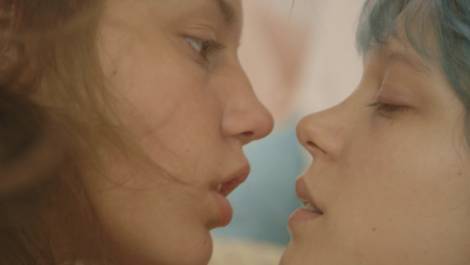Why you can trust GamesRadar+
Twenty years after the classic Three Colours: Blue (1993) comes another movie that takes its symbolic cue from the ‘liberty’ stripe of the French flag. In the earlier film, liberation is found in grief. Here, more conventionally, it’s born out of love. Although that’s pretty much the only conventional thing about it.
Based on a graphic novel, Abdellatif Kechiche’s 2013 Palme d’Or winner spans several years as it follows Adèle (Adèle Exarchopoulos) on her path from student to teacher.
Her story begins when, as a teenager, she falls for Emma (Léa Seydoux), a twentysomething art student with a shock of blue hair. It’s the trigger for a relationship that will define – and devour – Adèle.
Three hours long, Blue Is The Warmest Colour bestows epic status on a subject usually handled coyly or ignored altogether: female desire.
The heightened treatment feels entirely apt – this is first love, in all its intoxicating, devastating glory. Under the microscope of relentless close-ups, Exarchopoulos is a revelation: appealingly awkward, palpably vulnerable and sparking serious chemistry with Seydoux.
There was plenty of Cannes clamour over the sex scenes. They’re graphic, sure, but not gratuitous – and most importantly, key to revealing the depth of the ladies’ attraction.
What’s more, the physical boldness is matched emotionally and psychologically. Whether it’s passion or pain, you’ll feel it too.
Verdict:
Fearless, relatable and beautiful, this is one of the year’s best. Holding you so close for so long, you won’t want to break free.







